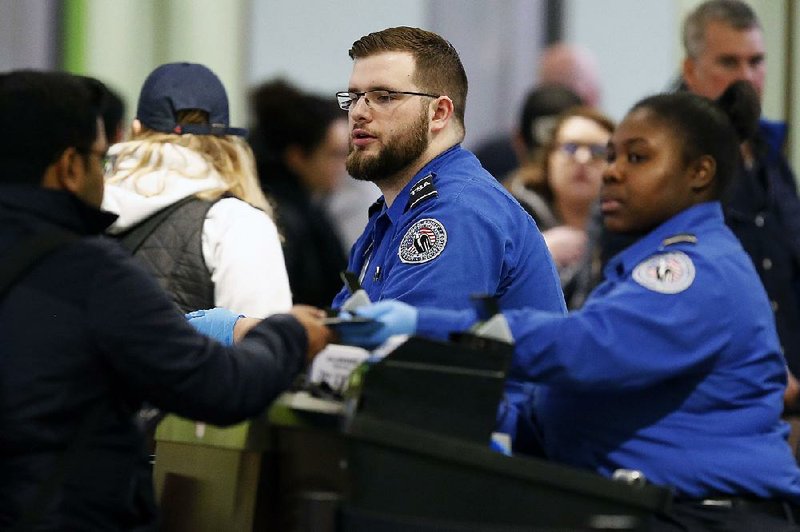Transportation Security Administration workers at several major airports around the country, working without pay since the partial government shutdown began Dec. 22, have been calling in sick in heightened numbers, according to union and airport management officials.
More than 150 TSA employees, many of them responsible for screening passengers, called in Friday morning at Kennedy International Airport in New York to say they were ill or otherwise unable to work their shifts, according to a union official with knowledge of the situation.
The staffing gap was covered by other officers who also are working without pay, the person said.
The call-outs have spiked to three times their normal level at Dallas-Fort Worth International Airport, where an average of 25 TSA employees usually call in sick per shift, a local official of the agency told CNN, which first reported on the story.
The shutdown has left 800,000 federal workers either on furlough or working without pay because their jobs are deemed essential. About 51,000 TSA employees who screen passengers are considered essential. They are among the 420,000 federal employees who are expected to continue working without the promise of a paycheck next Friday. Traditionally, after a government shutdown, those essential workers have recouped their pay.
A federal official, who spoke on condition of anonymity because the official was not allowed to comment publicly on the matter, said the call-outs seemed to be a coordinated protest. But union officials said that many of the workers who called in sick were most likely seeking alternative temporary employment to make up for the lost wages.
"Fifty to 100 people are calling out at any particular airport," said Hydrick Thomas, president of the TSA union under the American Federation of Government Employees.
"They are not coming to work because they don't have the money to get to work. They're not just taking off. They're not saying, 'We're going to shut things down.' They are the lowest-paid employees in the federal government, and they don't have the money to get to work."
A TSA spokesman played down the issue and attributed the increases in call-outs to typical patterns around the holidays and flu season. But he said that wait times for passengers could be longer if sick calls increase.
"Security effectiveness will not be compromised and performance standards will not change," the spokesman, Michael Bilello, said in a text message. "TSA is grateful to the agents who show up to work, remain focused on the mission and respectful to the traveling public as they continue the important work necessary to secure the nation's transportation systems."
Spokesmen for the Metropolitan Washington Airports Authority, which controls Reagan National and Dulles International airports, and for the Baltimore-Washington International Marshall Airport said they have not seen any increase in lines at TSA checkpoints.
"We don't get a head count of number of TSA workers on the job each day, but we have not seen longer lines that would be out of sync with where we are in the travel season," said Metropolitan Washington Airports Authority spokesman Rob Yingling. "Right now it's the low season, now that the holidays are finished. Traffic is very light, and we have not seen any significant lines since the conclusion of Christmas."
"Call-outs have increased, but they're really having minimal impact," said TSA spokesman Jim Gregory. "To date the [checkpoint] wait times remain within TSA standards."
Those standards are a maximum of 30 minutes spent in a regular checkpoint line and 10 minutes for those who pass through the expedited line under the TSA's PreCheck program. Gregory said that on Thursday, 2.2 million passengers passed through TSA checkpoints and 99.8 percent of them waited less than 30 minutes.
Information for this article was contributed by Glenn Thrush of The New York Times and by Ashley Halsey III of The Washington Post.
A Section on 01/06/2019
